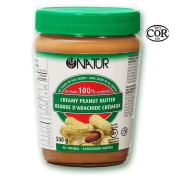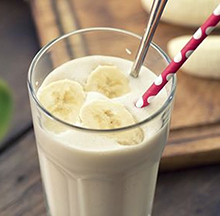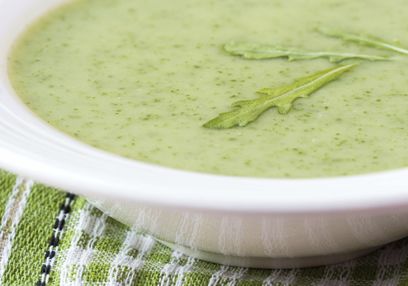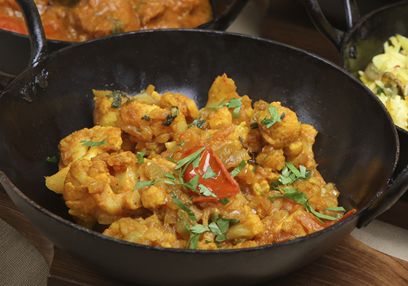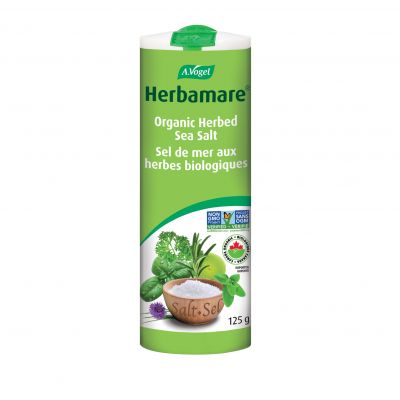1 – All calories are created equal
If you're trying to lose weight, you may be convinced that calories are the enemy and that the fewer you consume, the better. It can be difficult to shake this mindset and you might find yourself becoming obsessed with labels and gravitating toward low-calorie alternatives that promise you a healthier body.
However, this attitude is frankly unhealthy. We're all told that we need around 2,000–2,500 calories a day, but this figure isn't a true reflection of your individual needs. How many calories you need will vary depending on factors such as how active you are, your body composition and even what you eat.
Also, calorie counting can cause you to increase your intake of processed foods—after all, if the package says that this tasty ready-made meal has only 364 calories, then it can't be that bad for you, right? Well, while it may contain fewer calories, it almost certainly also has a much lower nutrient content!
Nutrients should be your main focus when it comes to food: an avocado might have the same calorie content as a chocolate bar, but they couldn't be further from each other when it comes to meeting your daily nutrient requirements.
2 – Everyone should be going gluten-free
It's estimated that some 300,000 Canadians suffer from Celiac disease. People with this condition struggle to break down gluten and can become hypersensitive to it, to the point where they have to eradicate it completely from their diets.
There's no arguing that gluten sensitivity is a very real problem, but many Canadians who've gone gluten-free don't suffer from any form of gluten sensitivity at all. Instead, they're drawn to the diet by the promise that going gluten-free will help them to lose weight or make them innately healthier as a result.
The truth is that this simply isn't always the case. It's true that unhealthy foods such as cakes, white bread and other forms of processed carbs often contain gluten, but the gluten-free alternatives aren't always much better and certainly aren't innately healthier. In fact, there's usually little nutritional difference between the two and the gluten-free varieties sometimes contain higher amounts of sugar and salt.
3 – Egg yolks increase your cholesterol
This particular myth has been around for a while, so it's become quite entrenched in our collective psyche. Egg yolks, unlike egg whites, are perceived to be the unhealthiest part of the egg due to their high cholesterol levels, which many worry will in turn increase our own blood cholesterol levels.
This concern isn't entirely unjustified. High cholesterol levels are a major contributor to cardiovascular disease, a very real and problematic issue in Western countries like Canada and the US. However, just because a food contains high levels of cholesterol doesn't always mean that it can raise your blood cholesterol levels.
Your liver is responsible for producing cholesterol and when you eat high-cholesterol foods such as egg yolks, very often it lowers your production of cholesterol. Also, cholesterol isn't the only thing that egg yolks have to offer: they're also quite high in vitamin B12, an important nutrient for vegetarians!
Arguably, the most important thing to remember when it comes to egg yolks is to have them in moderation rather than completely avoiding them. If you eat egg yolks every single day, then yes, your blood cholesterol levels might eventually be impacted. But having a couple of poached eggs once a week is unlikely to have a longlasting effect.
4 – Dark chocolate is good for you
While quite a few studies have touted the benefits of dark chocolate (namely its high content of flavonoids and minerals like magnesium), they've often ignored that these benefits are largely attributed to cocoa, a component of dark chocolate, and ignore how dark chocolate still undergoes many of the same processing that milk chocolate does, often getting stripped of its nutritional content along the way.
The good news though, is that there is an alternative for all you chocoholics! Instead of opting for dark chocolate, you could try choosing raw-cocoa-based chocolate. Raw cocoa is processed at significantly lower temperatures than conventional chocolate, so it still retains much of its nutritional content. You could try mixing raw cocoa powder into your smoothies, or give raw cocoa chocolate bars a try—there's so many to choose from these days, so you're pretty much spoiled for choice! By the way, we have a great energy bite recipe with raw cocoa powder... It's a tasty snack that will give you back your energy!
5 – Snacking is bad
You've probably been told countless times that snacking between meals is bad for you and can lead to spikes in your blood sugar levels and fluctuations in your waistline. Well, I'm not here to knock this idea entirely: if you reach into your desk drawer to pull out a chocolate bar at 11 a.m. or munch on a bag of chips in the afternoon, then yes, in this case, snacking is probably not doing you much good.
However, not all snacks are created equal and we all need something to keep us going sometimes when our energy levels start to slump. So no, I wouldn't say that you should stop snacking. Instead, reconsider what you're snacking on: chips, cake, chocolate and cookies all add up eventually, so why not switch to some healthier options?
Homemade energy balls, oat bars and fruits are good alternatives, and this website's recipe section is brimming with delicious and healthy options! To give you some ideas, I've listed just a few of my personal favourite snacks below.
Crispy Chickpeas
Muesli Bars
Healthy Banana Brownies
6 – Low-fat options are good
If you're attempting to improve your diet, then fat is probably your biggest concern. As with many entrants on this list, this fear of fat isn't entirely unwarranted, as there's considerable evidence backing up the idea that trans fats are often linked to increased levels of LDL cholesterol and inflammation. But this is just one type of fat.
If you take the route of jettisoning fat from your diet entirely, then you're going to run into a lot of problems. Your body needs fat to survive—believe it or not, your brain is mostly composed of fat—and the right types of fat can boost your production of healthy cholesterol. Essential fatty acids are needed for a wide variety of functions and they can only be obtained through your diet—omega 3, for example, is just one essential fatty acid I'm sure you've heard of.
Also, if you're trying to lower your fat intake, you might be opting for "low-fat" alternatives, which can present a number of challenges. Many of the low-fat foods on supermarket shelves still contain hidden dangers, such as sugar and refined carbohydrates, so they're not really much healthier than the full fat varieties, if at all!
7 – Natural sugar is better
Your body, to an extent, is programmed to crave sugar. This instinct is a remnant from our caveman days, when sugar was an essential source of energy garnered from fruit. These days, our raging consumption of sugar is turning into an epidemic, with many of us eating well over the World Health Organization recommendation of six teaspoons a day of added sugar.
As a nation, most of us are aware of this problem though and are now starting to look for healthier alternatives. To meet this new demand, many of us are turning to more "natural" sources of sugar, such as agave syrup, honey and maple syrup. But are these alternatives really that much better for us? Unfortunately, it seems not.
Despite being obtained from natural sources, these products still boast a high sugar content that will inevitably have a similar effect on your body.
8 – Vegan diets are intrinsically healthier
Veganism is definitely on the rise, with some estimates putting the number of vegans in Canada at 850,000. While many have been drawn to this lifestyle for moral and ethical reasons, there is also the general consciousness that vegans are essentially healthier than meat eaters, which isn't always true.
Yes, vegans are more likely to eat fruits and vegetables and less likely to encounter processed meats, but there are still plenty of junk food options available to vegans. Sugar, for example, is completely vegan-friendly, so this is something vegans need to keep an eye on. Not to mention, the restrictions that come with veganism can lead to health problems if you decide to become vegan without doing your homework first.
While eating vegan, it's very easy to become deficient in certain vitamins and minerals, such as iron, so you have to constantly stay on top of your nutritional needs and make sure that your diet is providing everything you need. For new vegans, making sure you're getting these nutrients can be challenging, which is why I'd never recommend going vegan overnight. Try to make it a gradual process. Not only will you have more time to adapt to your new diet, it also means that, in the long run, your new diet will be more sustainable.
References:
https://www.canada.ca/en/health-canada/services/food-nutrition/reports-publications/food-safety/celiac-disease-gluten-connection.html
http://www.bmj.com/company/newsroom/gluten-free-diet-not-recommended-for-people-without-celiac-disease/
https://www.ncbi.nlm.nih.gov/pubmed/22037012
https://www.ctvnews.ca/canada/more-than-3-million-canadians-vegetarian-or-vegan-study-1.4027606


